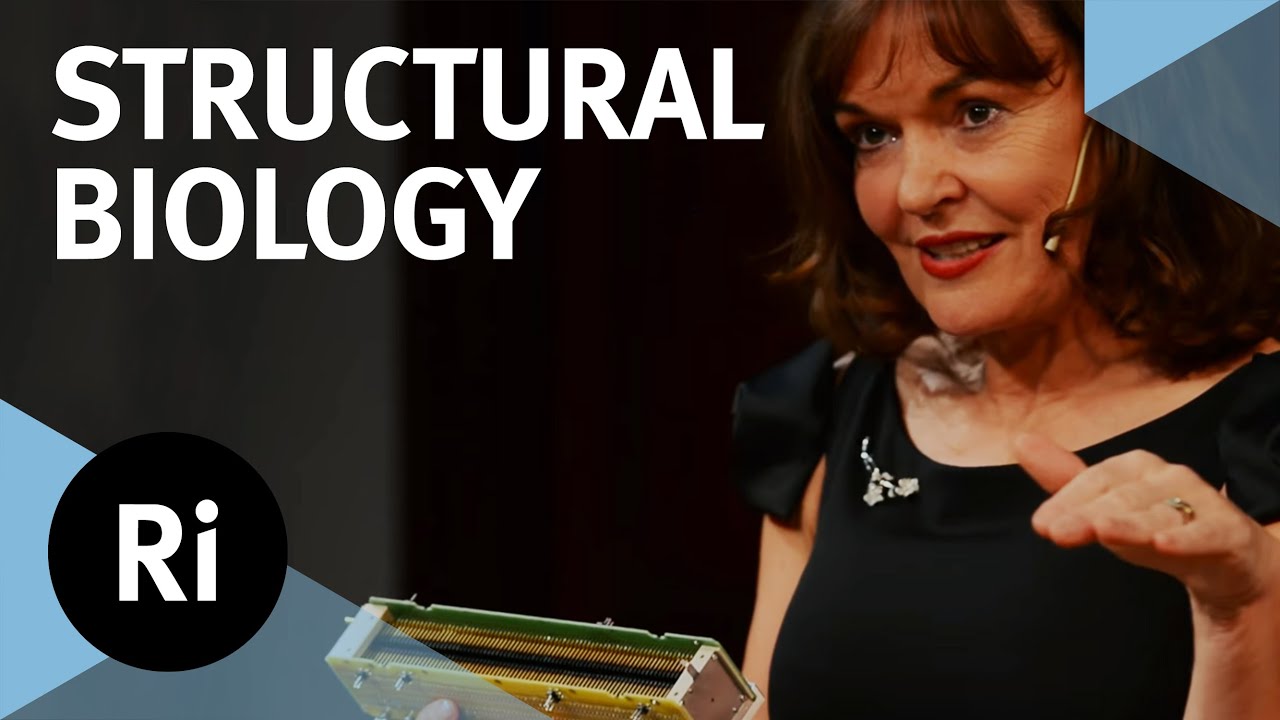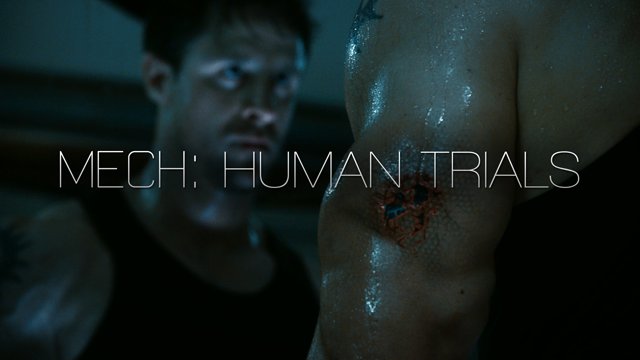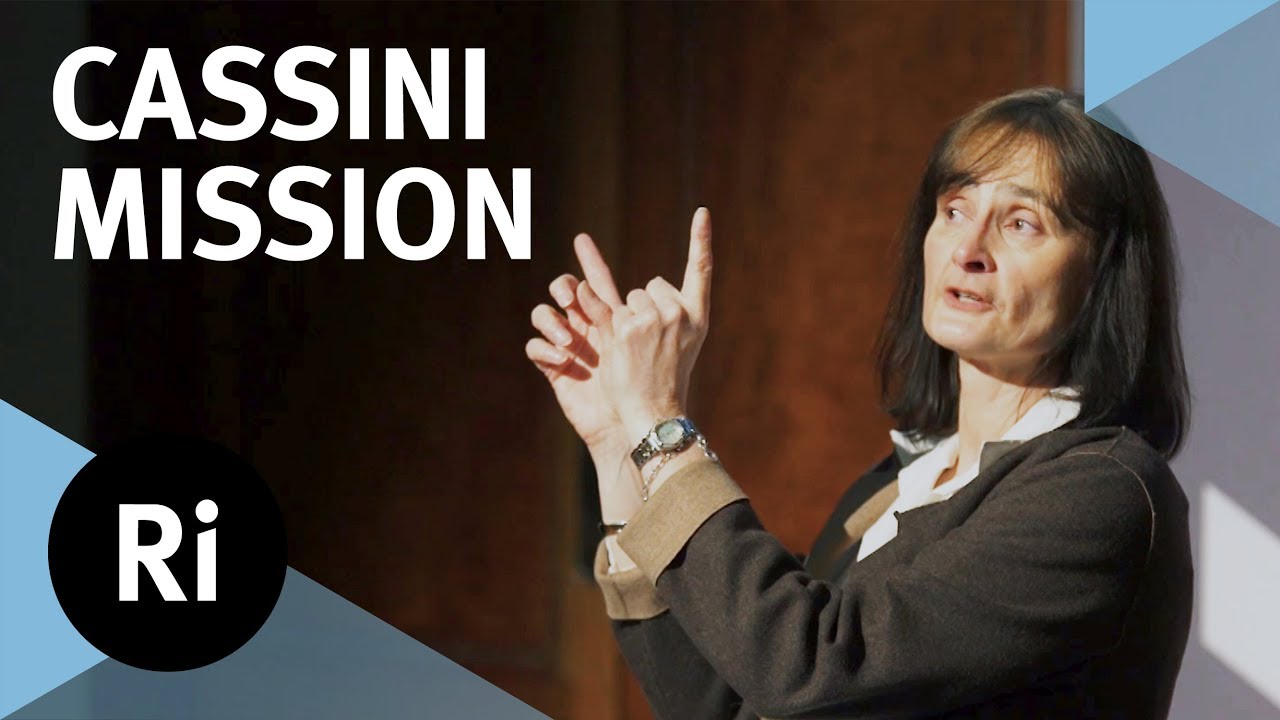The Royal Institution
Carol Robinson’s eccentric research transformed the field of structural biology by studying proteins in the vapour phase, rather than as solutions or solids. Her approach proved to be unpredictably worthwhile and is providing a new view of protein interactions.
Sorry for the sound towards the end of the video – we had a technical mishap unfortunately 🙁
Subscribe for regular science videos: http://bit.ly/RiSubscRibe
Knowing the shape of proteins is crucial for our understanding of human health and for developing new drugs. To do this current methods require proteins to be dissolved in a solution or locked in a crystal lattice. These approaches are incredibly powerful and are the mainstay of the field of structural biology as we know it. But what about the third phase? How would proteins survive once they have gone beyond solid and solution phases and released into the atmosphere?
While many scientists thought that proteins would no longer maintain their shape in the vapour phase Carol Robinson embarked on eccentric research into studying proteins freely moving within in this phase. This work proved to be unpredictably worthwhile, and her gas phase structural biology is now providing a new view of dynamic interactions between proteins, lipids and drugs.
Dame Carol Robinson is a British chemist, working as a Royal Society Research Professor at the Physical and Theoretical Chemistry Laboratory at the University of Oxford.
Carol is the first female Professor of Chemistry at the University of Oxford and was previously the first female Professor of Chemistry at the University of Cambridge. She is renowned for pioneering the use of mass spectrometry as an analytical tool and for her ground-breaking research into the 3D structure of proteins.
Subscribe for regular science videos: http://bit.ly/RiSubscRibe
The Ri is on Twitter: http://twitter.com/ri_science
and Facebook: http://www.facebook.com/royalinstitution
and Tumblr: http://ri-science.tumblr.com/
Our editorial policy: http://www.rigb.org/home/editorial-policy
Subscribe for the latest science videos: http://bit.ly/RiNewsletter
Source




First
hi, do you know more science
channel like this on YouTube?
comment it below thank you 🙂
wish I did well at school 🙁
"Carol is the first female Professor of Chemistry at the University of Oxford…" Relevance?
Good material, and as a chemistry student, it is interesting. But the greatest achievement people remember you by as a scientist shouldn't be about your gender. It should be about your discoveries.
The sound quality problem is a little annoying but I quickly got used to it and it didn't put me off watching the whole lecture.
Prof. Robinson, please don't criticize your work so much (e.g. saying that people probably don't find this interesting). It is highly interesting and you don't need to care for people who don't think so, they probably won't listen to the talk anyways. I really enjoyed the presentation, otherwise 🙂
Please come with an experiment that you tried at least 12 times and that is guaranteed to work. This is a talk are the RI!
Absolutely fascinating, amazing work AND highly Understandable delivery that's suitable for a wide variety of education levels and genres. (that is incredibly difficult to achieve, by itself! ). I could listen to this professor scientist all day –&– surely hope to find much more of her work and those related with which I may continue to enjoy learning. Thank you sincerely for posting this lecture! (from a doctor of pharmacy, PharmD).
Fantastic work and great presentation…an amazing amount of information in a mere hour! I was also struck at how much credit she gave to her students and peers. This was not my experience in academia and research. I would have loved to work with her. Thank you.
Excellent talk – Thanks!
She starts talking about protein folding problem @ 13:12.
crappy audio!
Dude at 8:27 seems to dislike what is in there. Urgh.
At the start of the video I felt I wasn't even gonna watch the talk past 5 min but her playful speaking pulled me through.
A little tough matter and a little confusing talk at times but an interesting talk nonetheless!
At 40 minutes or so the sound deteriorates into an echo and this is unfortunate since the explanation of fascinating practical applications was starting at that point. Could the audio be corrected?
i found nothing interesting exciting and practically demonstration in biology and physics as andrew syzdlo did in chemistry .